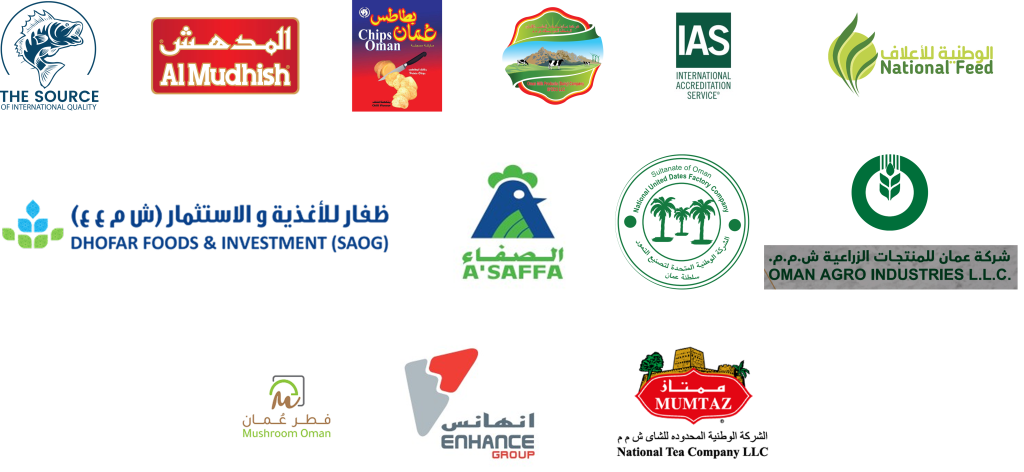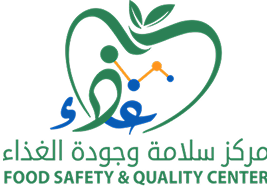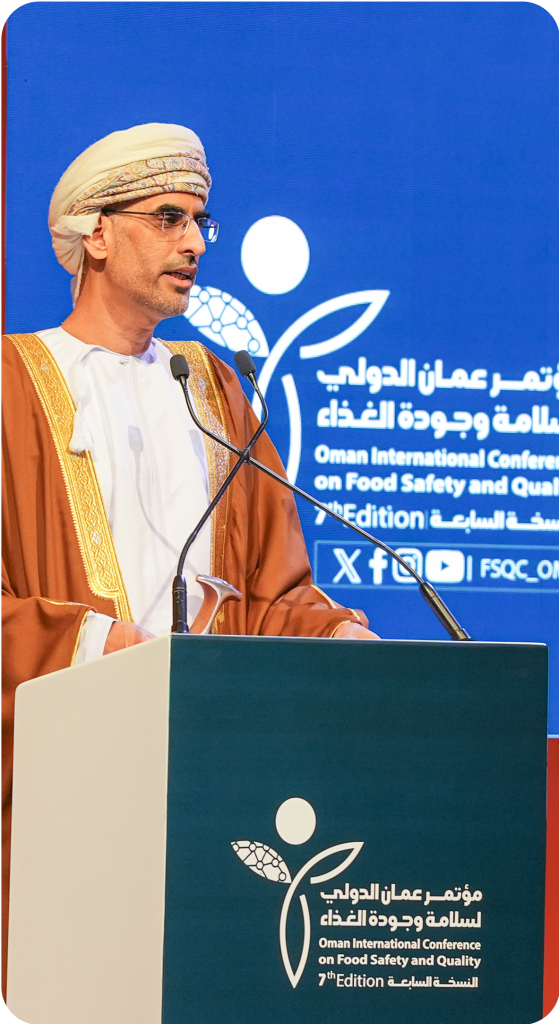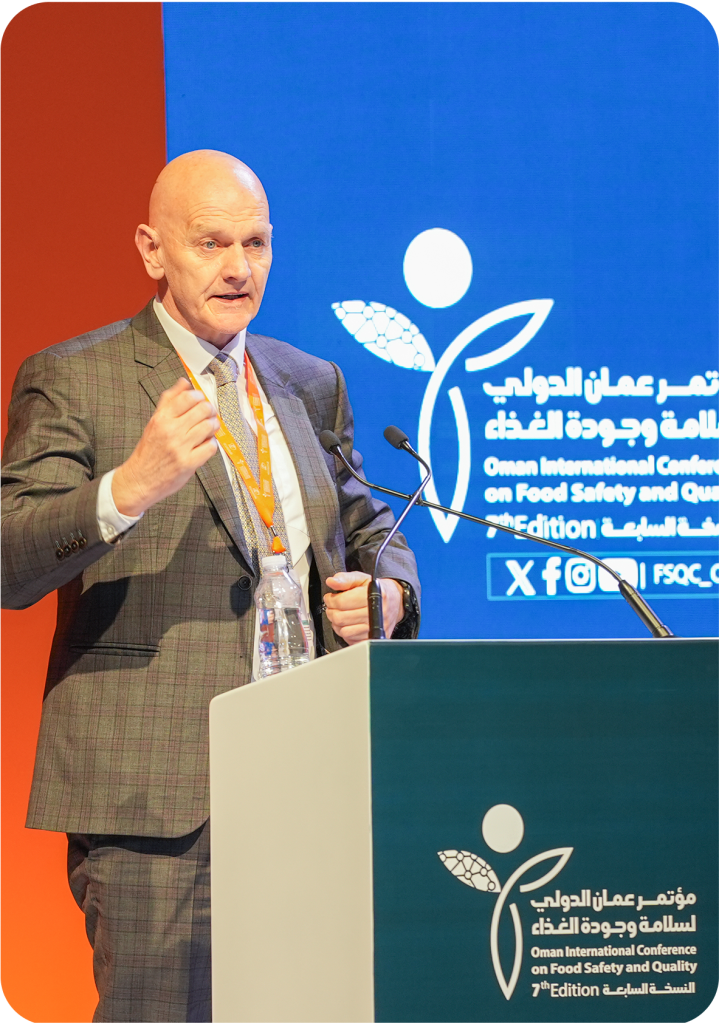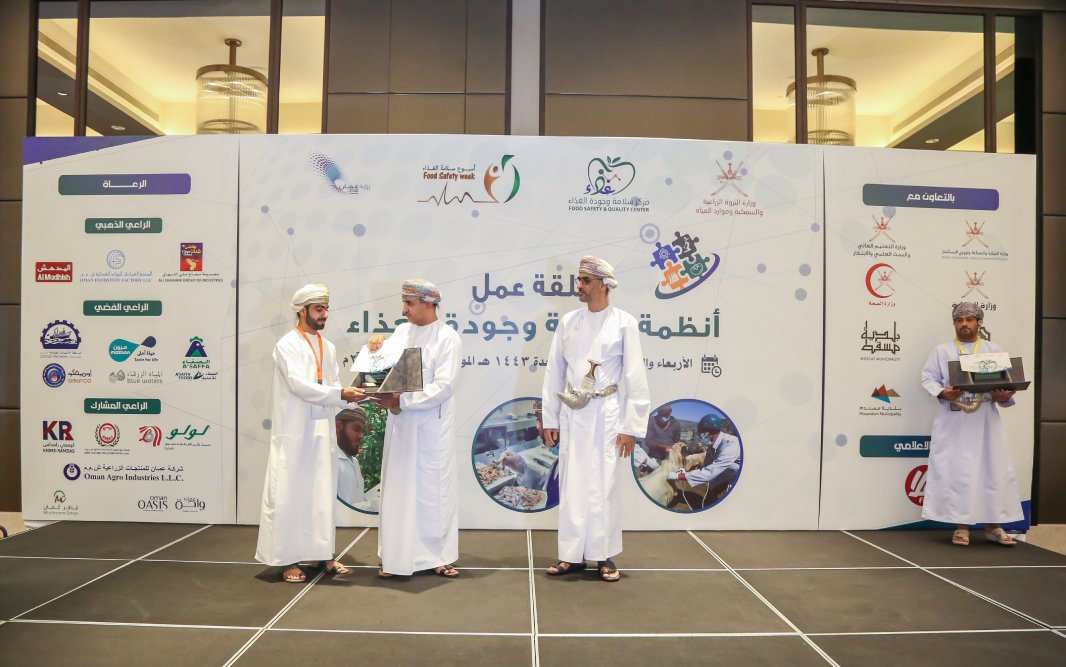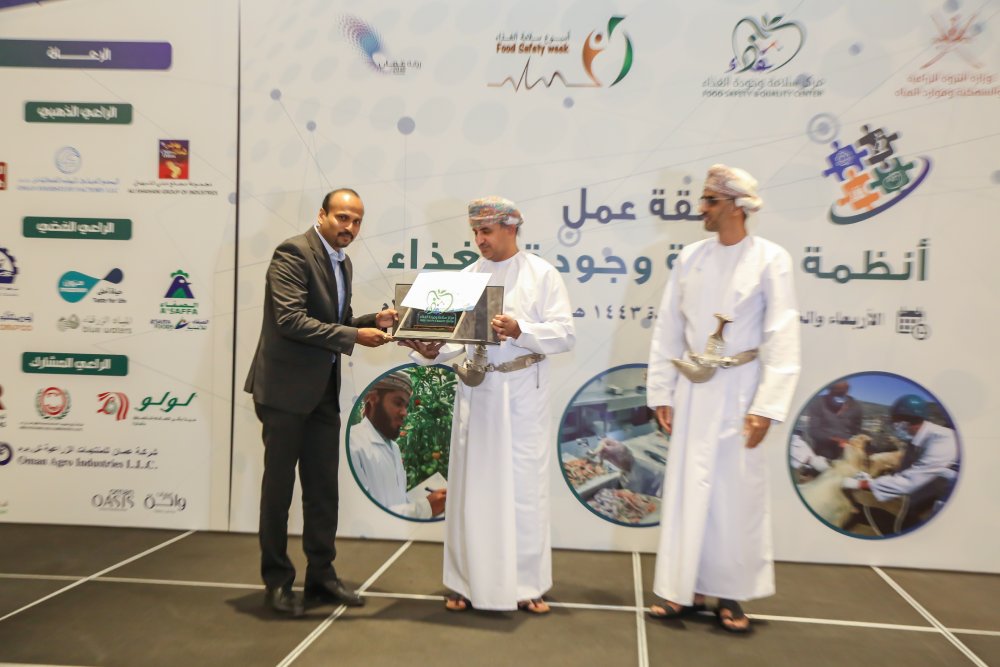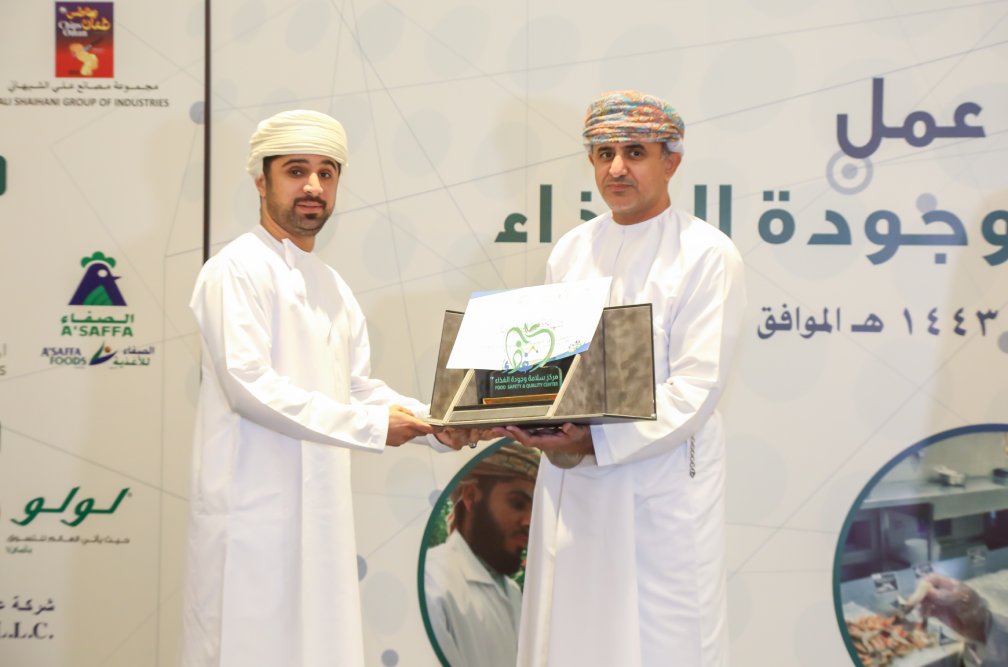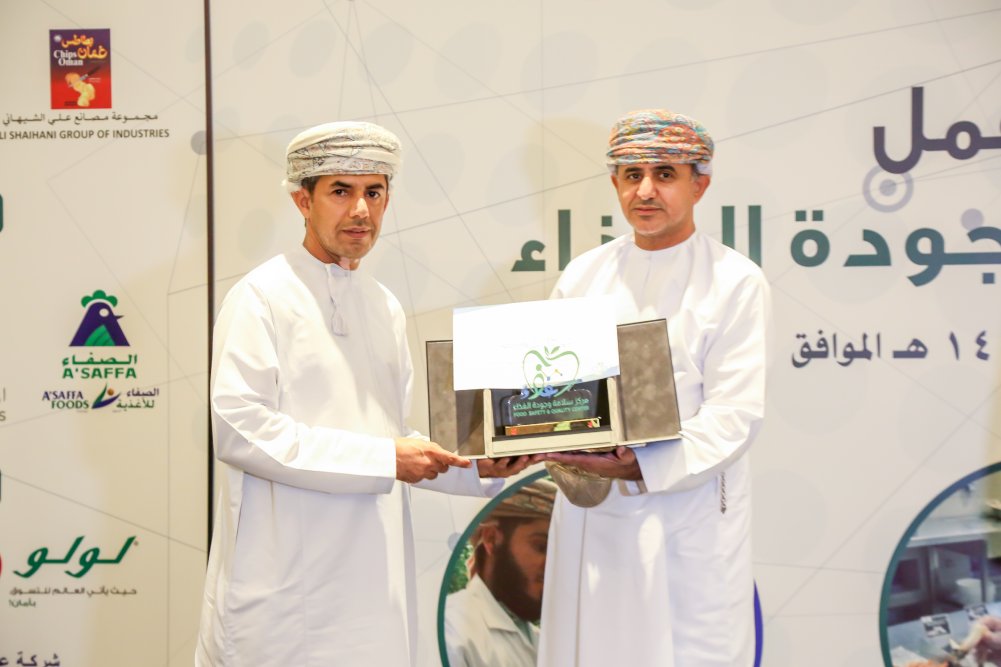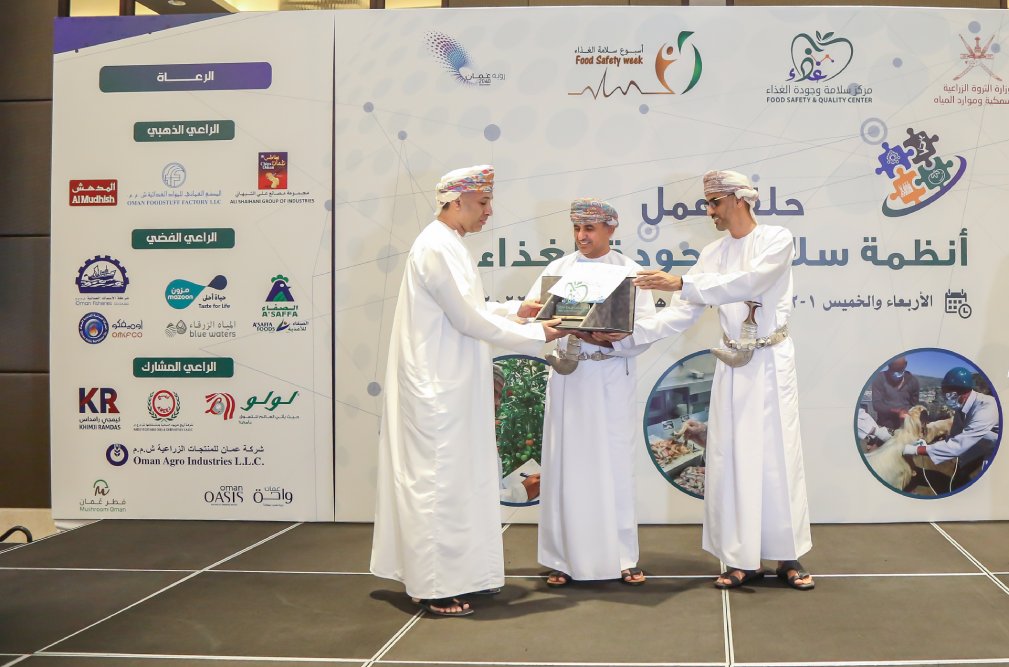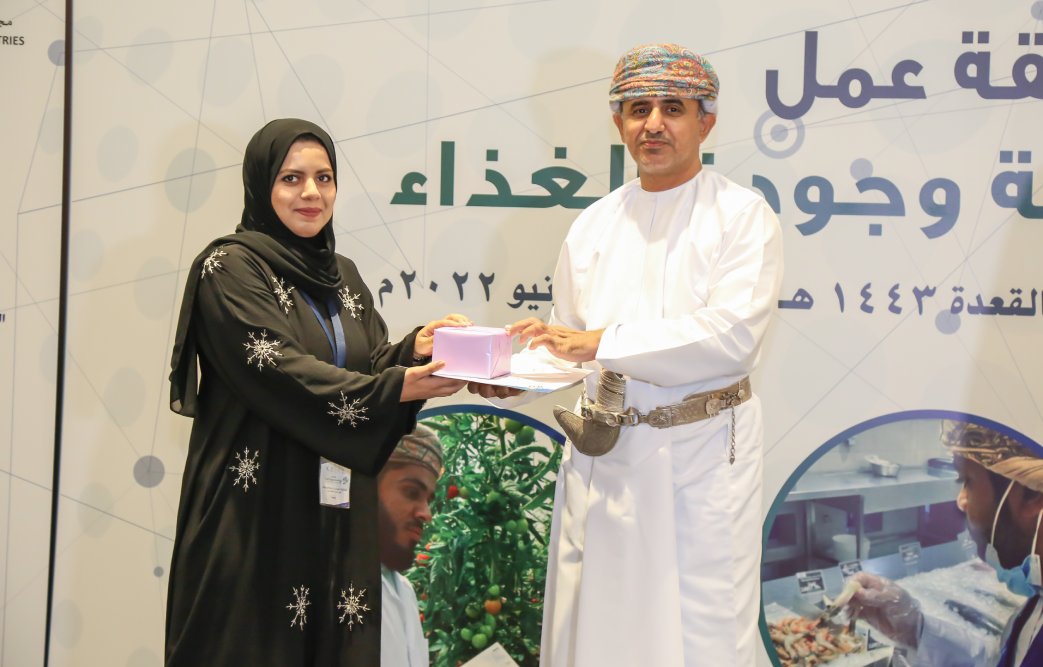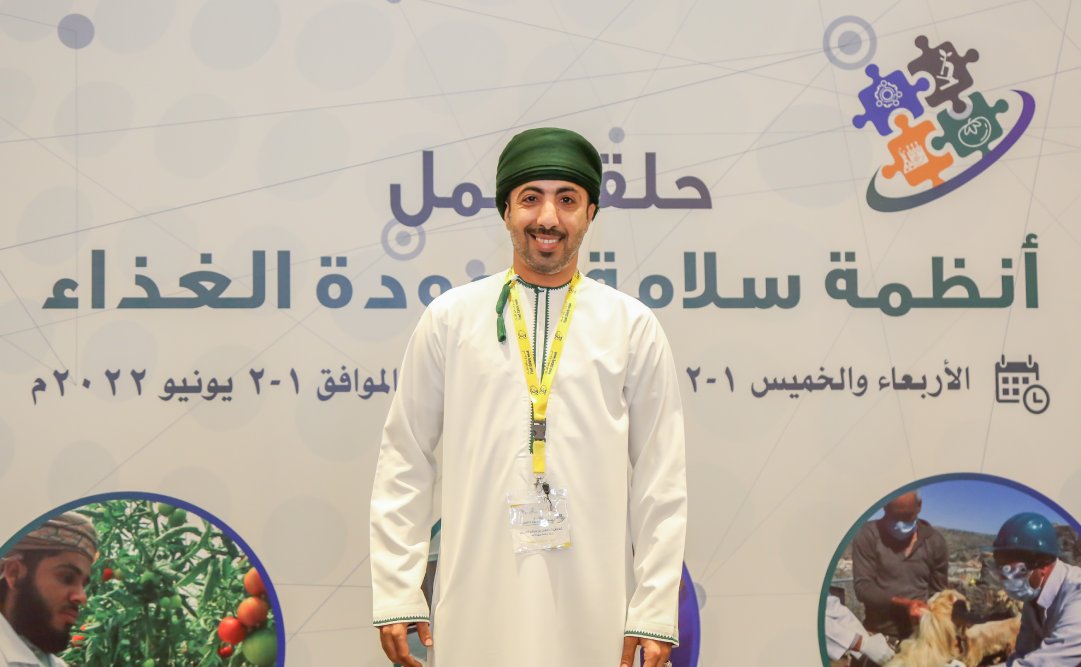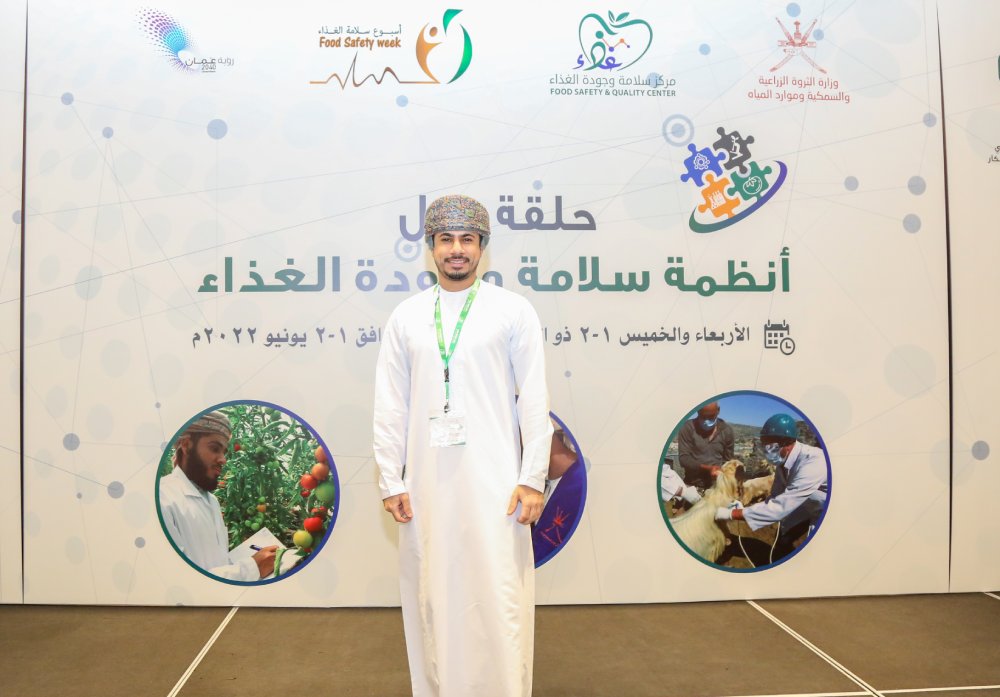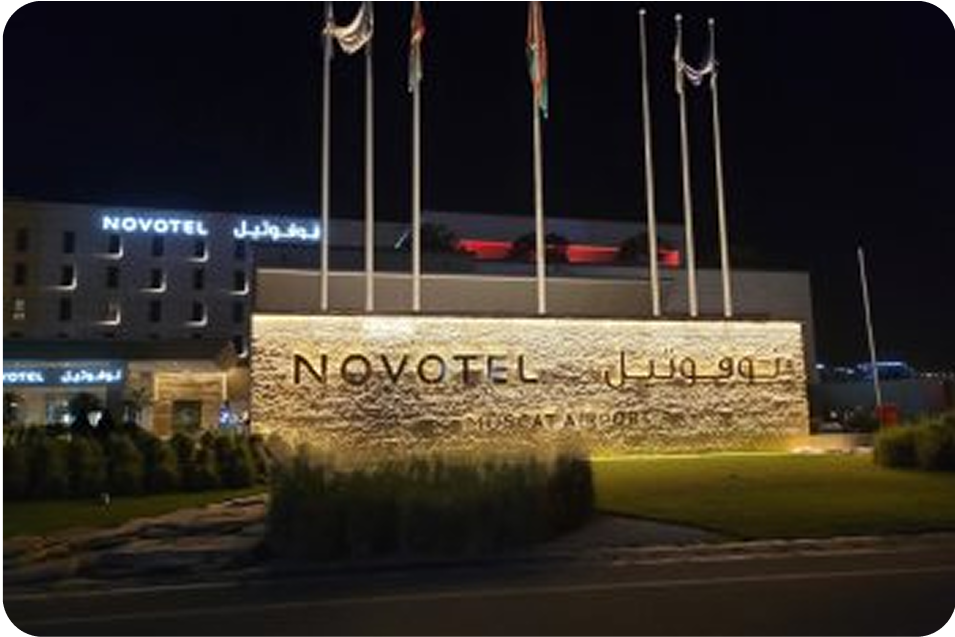








About the Event
The Ministry of Agriculture, Fisheries Wealth and Water Resources, represented by the Food Safety and Quality Center, is dedicated to ensuring the safety and quality of food as one of its most important strategic goals. Organizing scientific conferences is one of the essential means that contribute to achieving this goal, by strengthening partnerships and scientific cooperation and learning about the latest developments in the field of food safety.
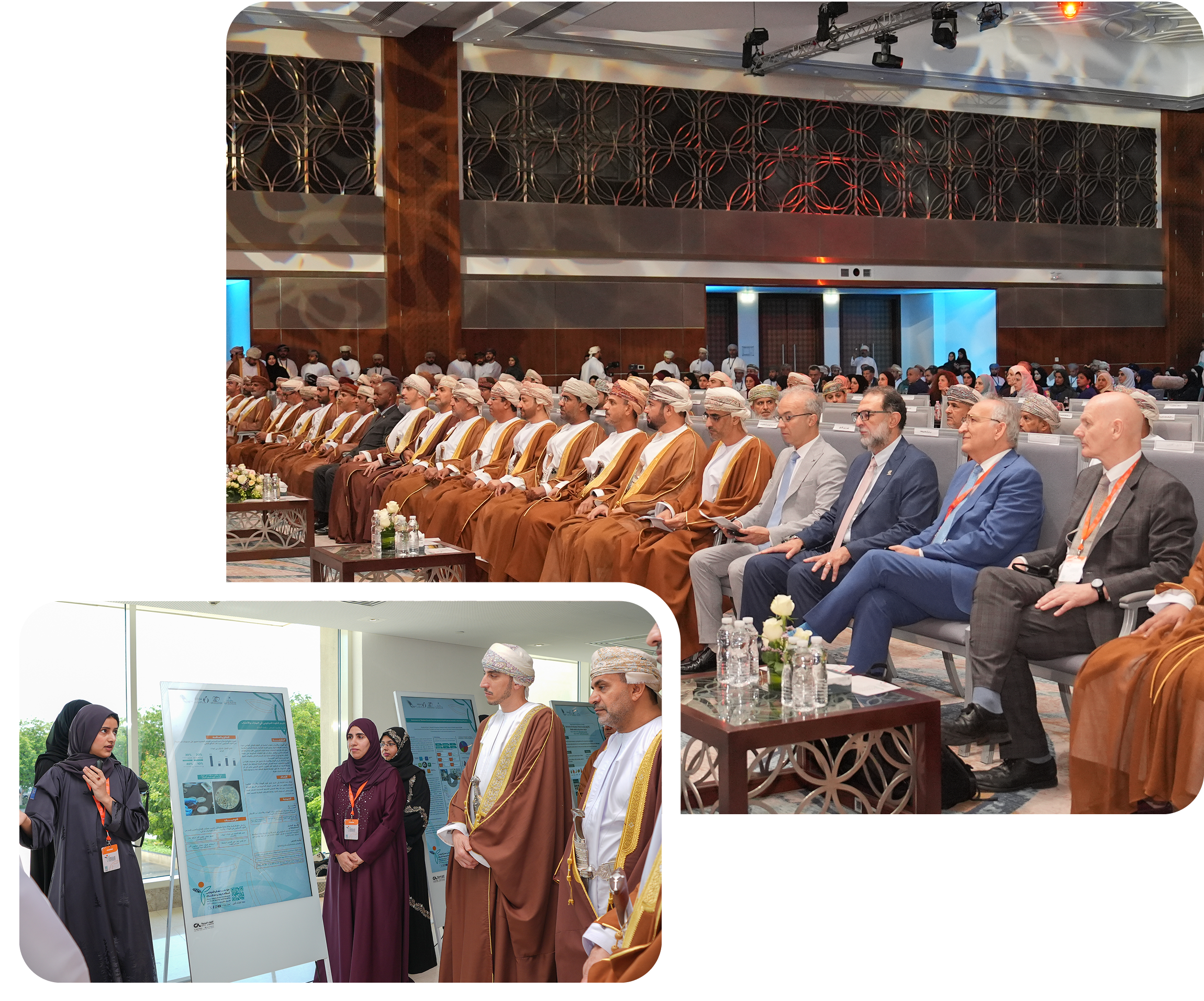
Conference Highlights- Day 1
Experience the energy, innovation, and inspiration from the opening day of the FSW Conference.

Regulatory Food Analytical Methods
Regulatory Food Analytical Methods include a set of methods that aim to ensure the safety and quality of food and verify conformity with health and quality standards. Food analytical methods include
- Chemical analysis

- Microbiological analysis

- Physical analysis

- Sensory analysis

Regulatory methods mean methods that are developed and used to verify conformity with legal provisions including food regulatory provisions designed to regulate the production, distribution and consumption of food in a way that aims to protect the health of the consumer and fair practices in the food trade. This topic will encompass discussions on
- Chemical analysis

- Local and international food legislative and regulatory requirements associated with food methods

- Quality management systems

- Ascertaining branding and packaging issues


Modernizing Food Safety and Quality Control and Oversight: Role of New Technologies and Artificial Intelligence
This theme focuses on the role of modern technology in developing innovative solutions that enhance food safety and quality, including but not limited to:
- Modern traceability systems.

- Novel methods used to improve production, storage and distribution processes

- Emerging technologies in supply chain management.


Food Fraud and Ascertaining Food Authenticity
Determining food authenticity is the process of verifying the validity and truthfulness of claims related to the characteristics or the source of food ingredients and products. Ascertaining authenticity contributes to supporting the protection of consumers’ health and enhances their confidence in the products available for sale, which in turn reduces the rate of food loss and waste and contributes positively to national economies overall. Several techniques and methods are used to verify food authenticity and ensure that the product does not contain adulterated or counterfeit ingredients. Examples of these techniques include
- Chemical analysis, including Mass spectrometry techniques, Infrared spectroscopy (IR)

- Genetic analysis

- Sensory and organoleptic tests


Risk Assessment to Support Food Regulatory Decision-Making
This theme will focus on developments made in the Arab region and globally to build capacities and competencies associated with risk assessment to support standard setting and decision making. The session will aim to offer updates on most recent risk assessment studies enabling documented food regulatory decisions globally. Enablers of risk assessment, such as availability of food consumption data and food occurrence information in the Arab region and beyond will be discussed.

Green Food Supply Chain
This theme highlights strategies, initiatives and programs aimed at reducing negative impacts on the environment (as a result of food supply chains), in addition to enhancing the sustainability of resources and consumers’ health. To ensure the sustainability of natural resources and meet nutritional needs, efforts must be synergized (governments, companies and local communities). Among the topics that can be presented under this theme are:
- Reducing food loss and waste: refers to all forms of waste and loss in the food supply chain, starting from farms to the final points of sale to the consumer.

- Sustainable production practices: includes sustainable agricultural practices, efficient use of resources and energy, proper storage and effective distribution.


Supply Chain Management and Logistics
Supply chain management is the process of planning, organizing, controlling and monitoring all activities related to moving goods and services from the point of origin to the point of consumption at the lowest possible cost and with the highest levels of service. Logistics is concerned with planning and managing operations to move goods and services effectively. Examples of topics that can be presented under this theme include:
- Achieving operational efficiency and reducing costs

- Handling orders and improving customer satisfaction

- Managing risks effectively

- Managing inventory

- Managing returned products



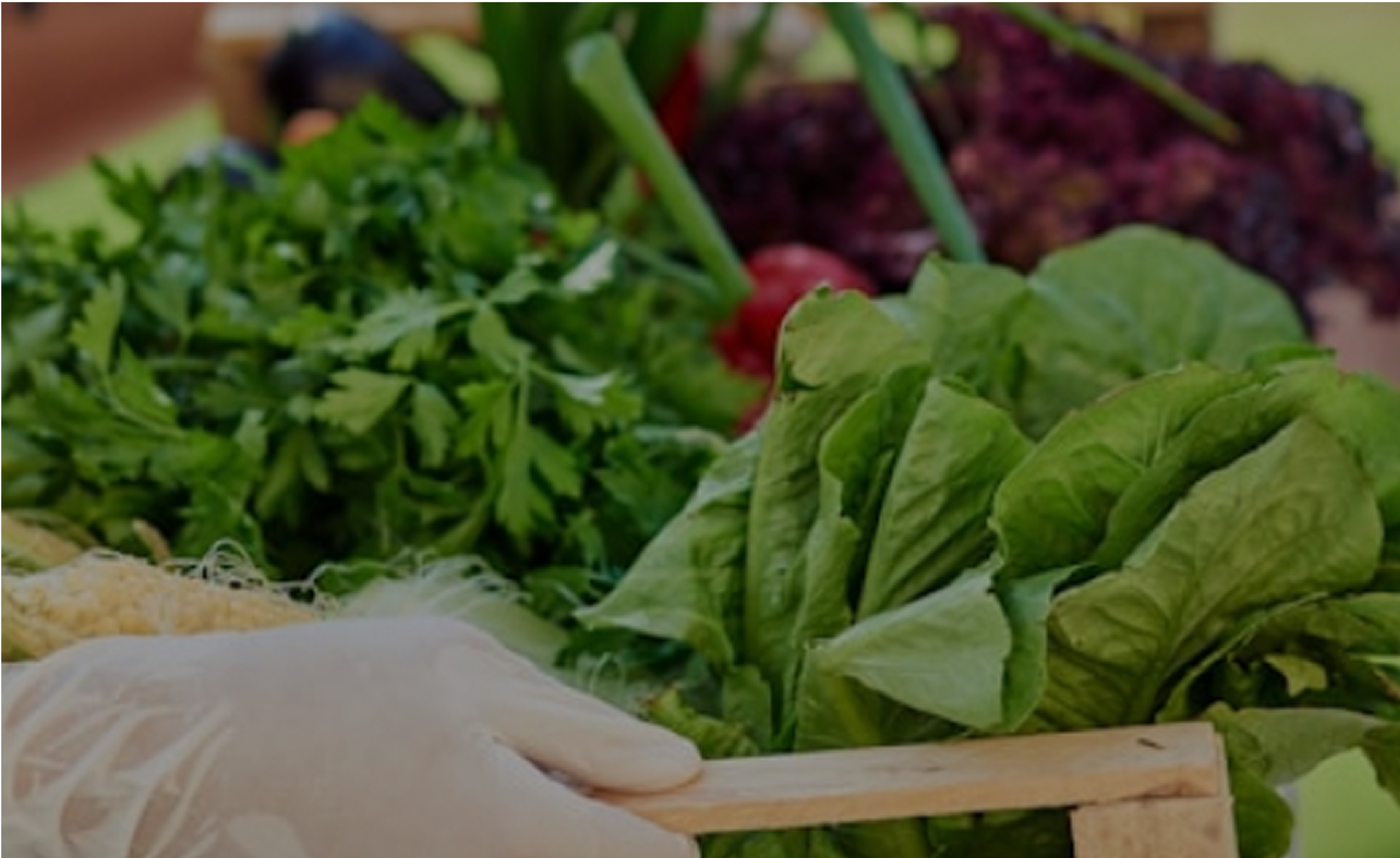
Modernizing Food Safety and Quality Control and Oversight: Role of New Technologies and Artificial Intelligence
This theme focuses on the role of modern technology in developing innovative solutions that enhance food safety and quality, including but not limited to:




Food Fraud and Ascertaining Food Authenticity
Determining food authenticity is the process of verifying the validity and truthfulness of claims related to the characteristics or the source of food ingredients and products. Ascertaining authenticity contributes to supporting the protection of consumers’ health and enhances their confidence in the products available for sale, which in turn reduces the rate of food loss and waste and contributes positively to national economies overall. Several techniques and methods are used to verify food authenticity and ensure that the product does not contain adulterated or counterfeit ingredients. Examples of these techniques include




Regulatory Food Analytical Methods
Regulatory Food Analytical Methods include a set of methods that aim to ensure the safety and quality of food and verify conformity with health and quality standards. Food analytical methods include




Regulatory methods mean methods that are developed and used to verify conformity with legal provisions including food regulatory provisions designed to regulate the production, distribution and consumption of food in a way that aims to protect the health of the consumer and fair practices in the food trade. This topic will encompass discussions on




Risk Assessment to Support Food Regulatory Decision-Making
This theme will focus on developments made in the Arab region and globally to build capacities and competencies associated with risk assessment to support standard setting and decision making. The session will aim to offer updates on most recent risk assessment studies enabling documented food regulatory decisions globally. Enablers of risk assessment, such as availability of food consumption data and food occurrence information in the Arab region and beyond will be discussed.

Green Food Supply Chain
This theme highlights strategies, initiatives and programs aimed at reducing negative impacts on the environment (as a result of food supply chains), in addition to enhancing the sustainability of resources and consumers’ health. To ensure the sustainability of natural resources and meet nutritional needs, efforts must be synergized (governments, companies and local communities). Among the topics that can be presented under this theme are:


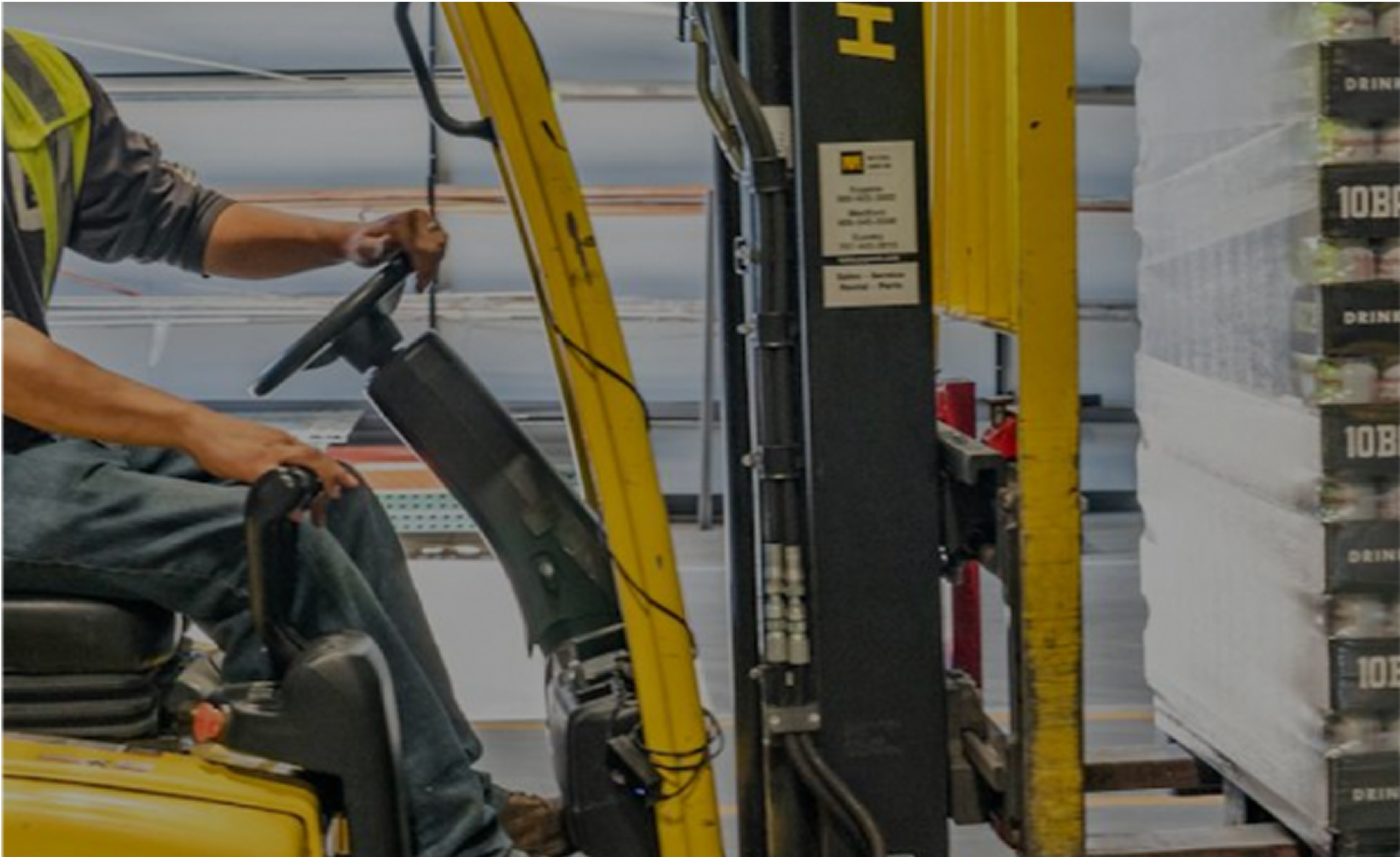
Supply Chain Management and Logistics
Supply chain management is the process of planning, organizing, controlling and monitoring all activities related to moving goods and services from the point of origin to the point of consumption at the lowest possible cost and with the highest levels of service. Logistics is concerned with planning and managing operations to move goods and services effectively. Examples of topics that can be presented under this theme include:





Important Dates
Abstract submission deadline
15 / March / 2025
Notification of acceptance
28 / March / 2025
Last day to register
15 / March / 2025
Main Sponsors

Diamond Sponsors

Golden Sponsors

Co Sponsors
